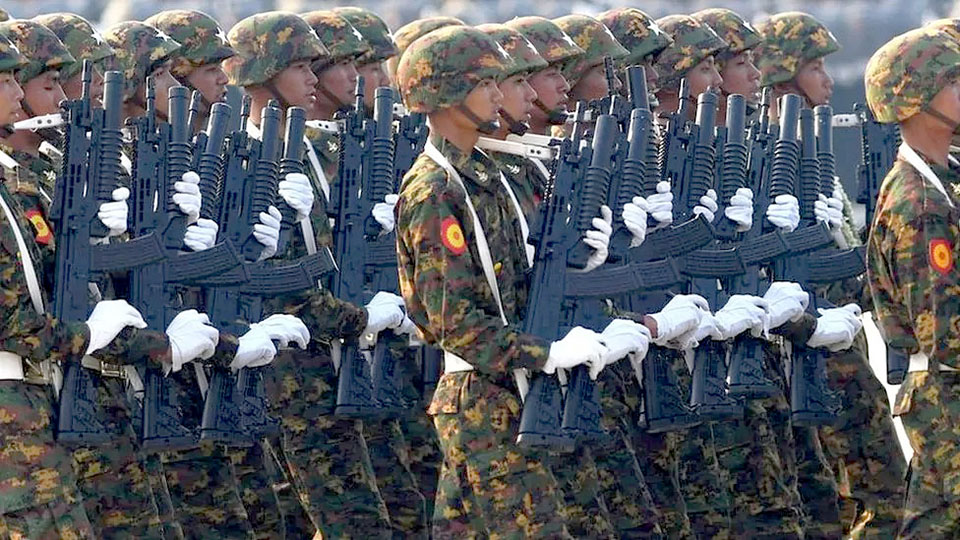
PATTAYA, Thailand – Dismayed Pattaya employers are complaining about the sudden increase in job vacancies following the attempt by the post-coup junta in neighboring Myanmar to ban young people, especially men, from leaving the country. Junta spokesman Zaw Min Tun said that enforcing Myanmar’s more than decade-old conscription was essential “for now” as too many people were deserting to other countries, Thailand in particular.
The eastern seaboard, including Pattaya, is heavily dependent on Myanmar workers in factories, agriculture, construction, tourism services and especially fishing. There are around 250,000 documented Myanmar workers in Thailand, with about one quarter residing in the Pattaya region. But there may be three times those numbers actually here: illegal immigrants who have crossed the porous and poorly policed border between the two countries, sometimes with their entire families.
Mongkol Sukcharoenkana, spokesman for the Thai national fisheries association, said the only answer was for the Thai authorities to issue labour permits whether or not applicants had a Myanmar passport or a special identification card issued by the junta. Roisei Wongsuban, representing the local migrants’ working group, said, “Many Pattaya hotels and construction sites are short of workers in what is best described as a labour crunch, so not too many questions are being asked.”
There is considerable confusion about the exact intentions of the junta. On the one hand, they need more soldiers to fight in the civil war but, on the other, they know that the remittances sent home by workers abroad is an important source of foreign currency revenue. On May 1, the junta suspended official permission to work abroad, but shortly afterwards stated that only those between the ages of 23 and 31 would “likely” be affected. The position of those already employed here legally is also ambiguous as they technically need permission from the Myanmar authorities to renew their contracts under the Memorandum of Understanding between the two countries.
A spokesman for Thailand’s Department of Employment in Chonburi province said the situation was still fluid. Reports from Mae Sot, at the Myanmar border, suggested that the military authorities were still issuing some passports and permits. However, those already here were reluctant to return to Myanmar to visit their families because of the risk they would be conscripted. But the issue for the Thai economy is that there is presently a working age population of 40.7 million, but with 44 million jobs to fill overall.








